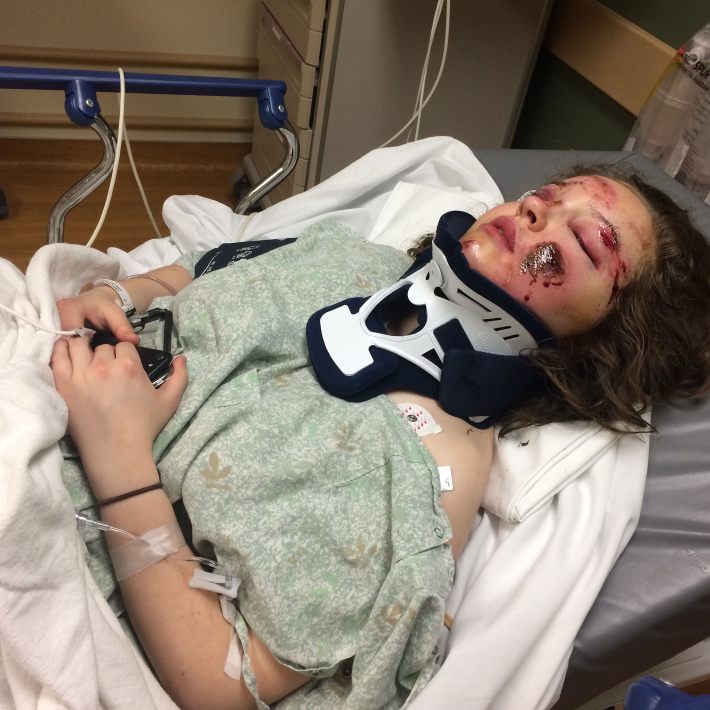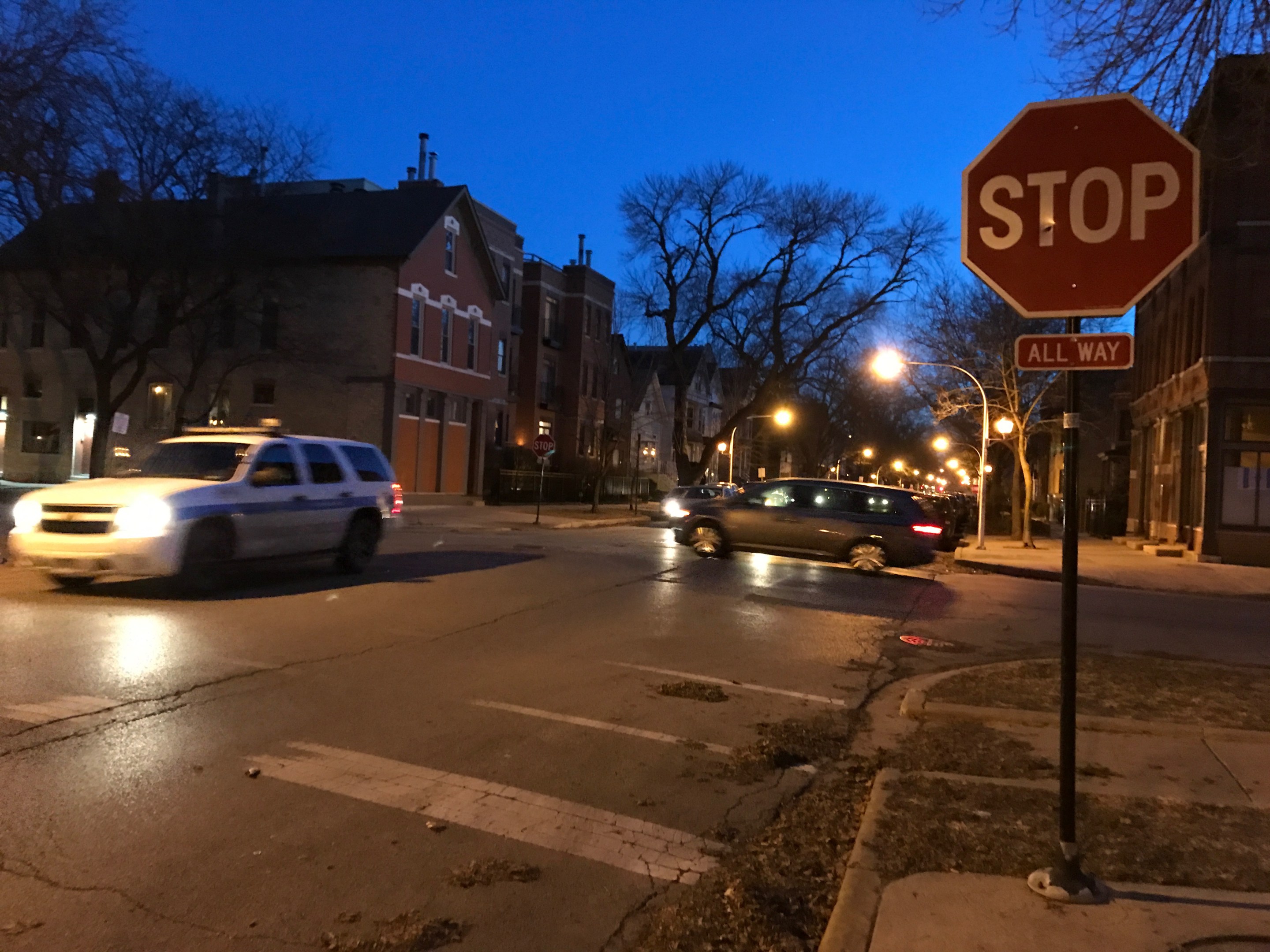[The Chicago Reader publishes a weekly transportation column written by Streetsblog Chicago editor John Greenfield. We syndicate a portion of the column on Streetsblog after it comes out online; you can read the remainder on the Reader’s website or in print.]
Around 11 PM on Wednesday, January 18, Abigail Kruger was sitting on her couch in her Lakeview duplex, just south of Wellington and Racine, when the evening's quiet was shattered by a loud bang.
"I thought it was a gunshot, or a car had hit a light pole," she recalls.
As Kruger went to her first-floor window, she heard a short burst of police sirens, then silence again, followed by a young woman crying, "Help, someone please help me." On the west side of Racine she saw 19-year-old Annie Zidek lying on the pavement, surrounded by four or five Chicago police officers.
Kruger ran outside. She says she thought Zidek had been shot, but as she approached the teen, she saw a dented and broken bicycle and realized that she had been struck on her bike. Zidek's backpack, phone, and one of her shoes were scattered across the street.
Kruger says she then assumed Zidek had been the victim of a hit-and-run. But the motorist who injured the cyclist was actually an as yet unnamed police officer who sped through the intersection at Wellington and Racine—which has four-way stop signs—en route to a burglary call.

The Chicago Police Department now argues that Zidek was at fault, claiming that she ran her stop sign, and that the officer who hit her had activated his emergency lights before he went through the intersection. However, Zidek's attorney says the truth about the crash has yet to be determined, and that the police department's refusal to accept responsibility is yet another example of our city's larger problem of police accountability.
Zidek, a DePaul undergraduate, was on her way home from work at a Starbucks near Wellington and Broadway when she was struck, according to a male relative who asked not to be named, citing fears of police retaliation.
In the aftermath of the crash, Kruger says, Zidek lay with the left side of her face and shoulder on the asphalt, her hips rotated toward the ground. Even though Kruger didn't yet know an officer had injured Zidek, she says she noticed the police weren't doing anything to comfort the victim.
"The police kept asking her if she knew what had happened. And she wanted to give them the information, but she was absolutely blindsided and had no idea," Kruger says. "She got really upset and started to cry, so I asked them to stop."
Kruger waited with Zidek until an ambulance took her to Advocate Illinois Masonic Hospital, where she was treated for a broken pelvis and leg, road rash, and injuries to her face, according to her male relative.
As Kruger walked back toward her house, she saw an unmarked Ford Explorer SUV parked diagonally across Racine, south of Zidek's bike, with a dented hood and a shattered windshield. Kruger then realized that an officer had struck Zidek.
"I was so frustrated," Kruger says. "The police knew exactly what happened."
Zidek and her father didn't respond to e-mails sent through their attorney, Antonio Romanucci of Romanucci & Blandin. Zidek was recently released from the hospital, Romanucci says, and is currently undergoing challenging and painful physical therapy.
In a statement last week, CPD spokesman Kevin Quaid blamed Zidek for the crash, claiming that she "disregarded a stop sign" and that the officer who struck Zidek had his emergency lights activated when the crash occurred.
Officers responding to emergencies may disobey traffic rules, such as stopping for stop signs, if they activate their lights and sirens, according to CPD. Police also have the option not to turn on sirens if they need to roll up on a crime scene quietly, as long as it's safe to do so.
But Romanucci argues that this doesn't absolve the officer who struck Zidek, if it's found that he was "acting with conscious disregard" for the safety of others.






